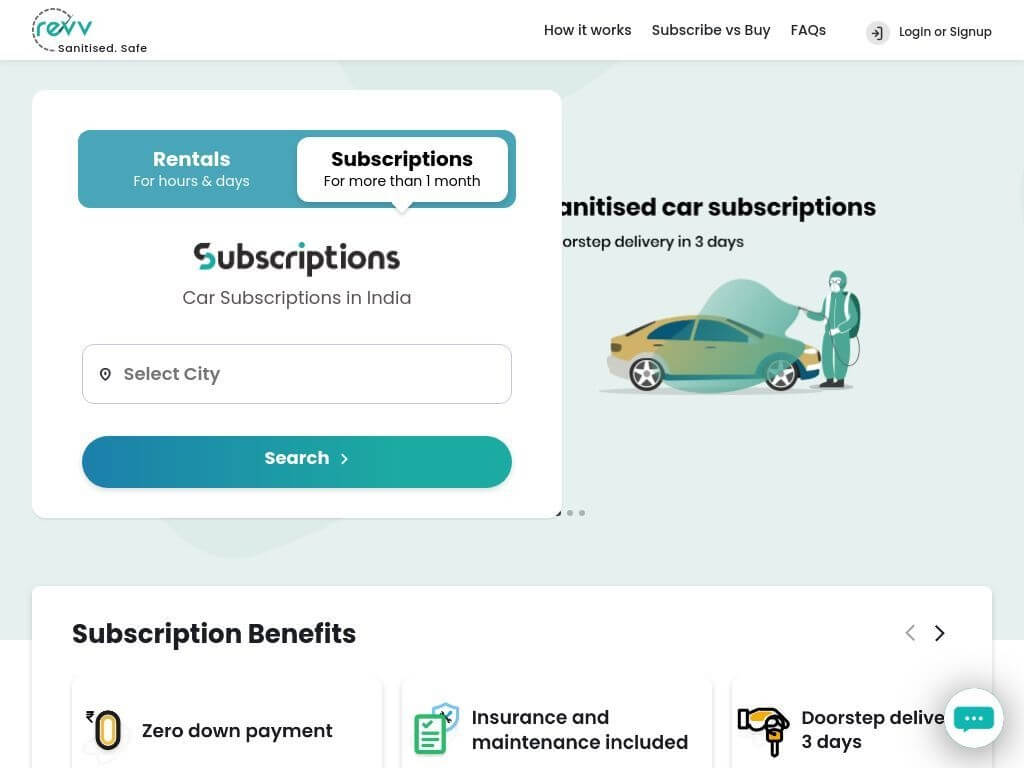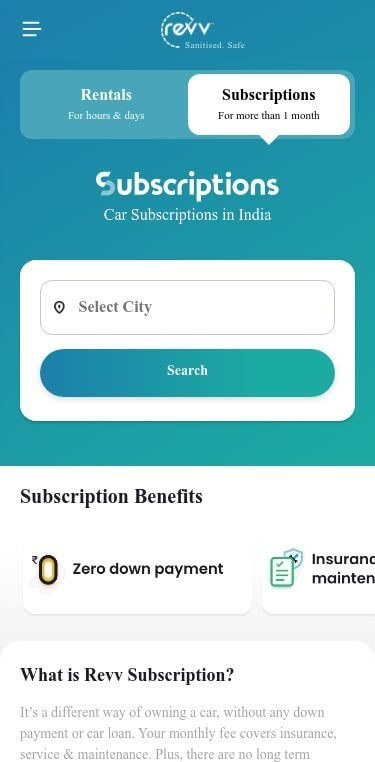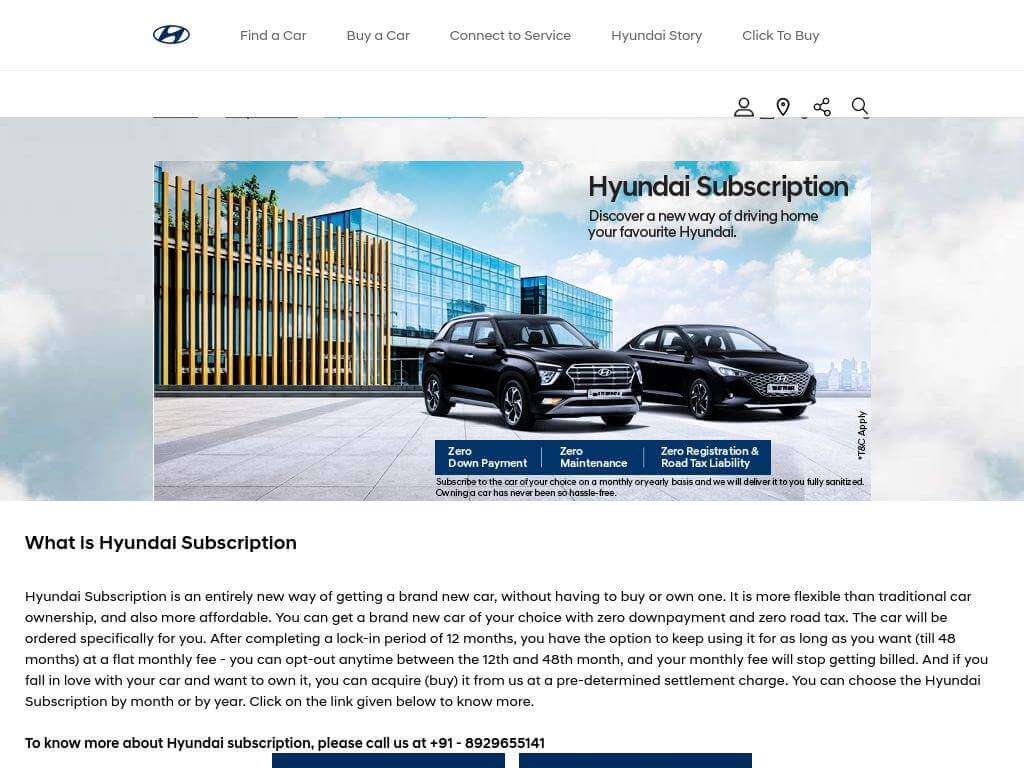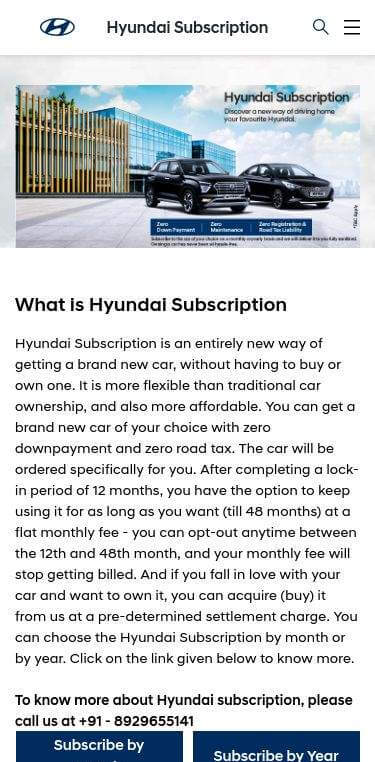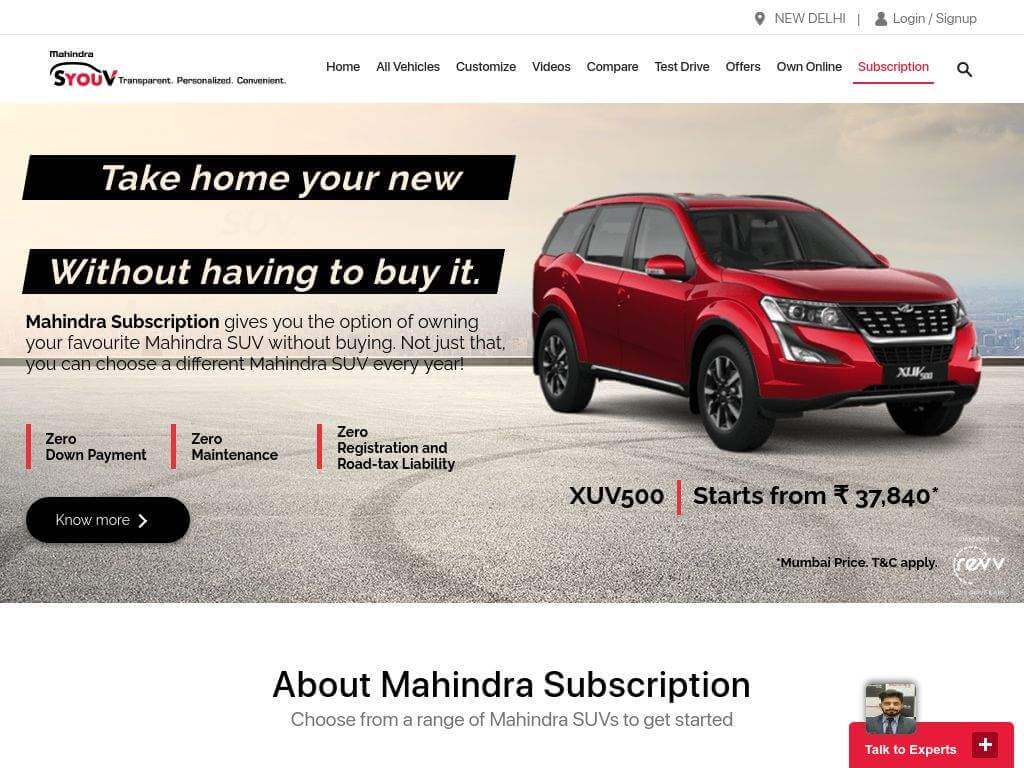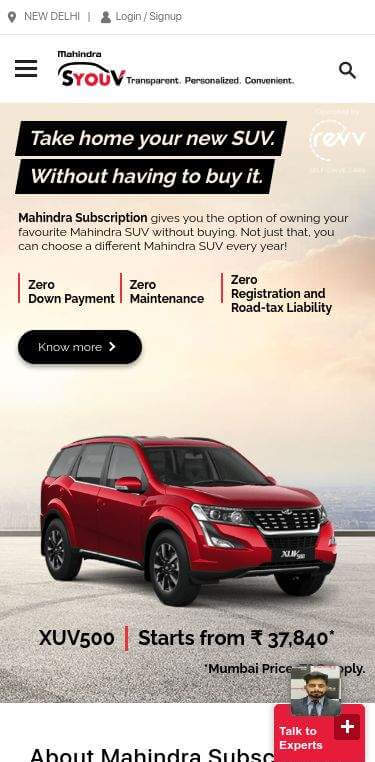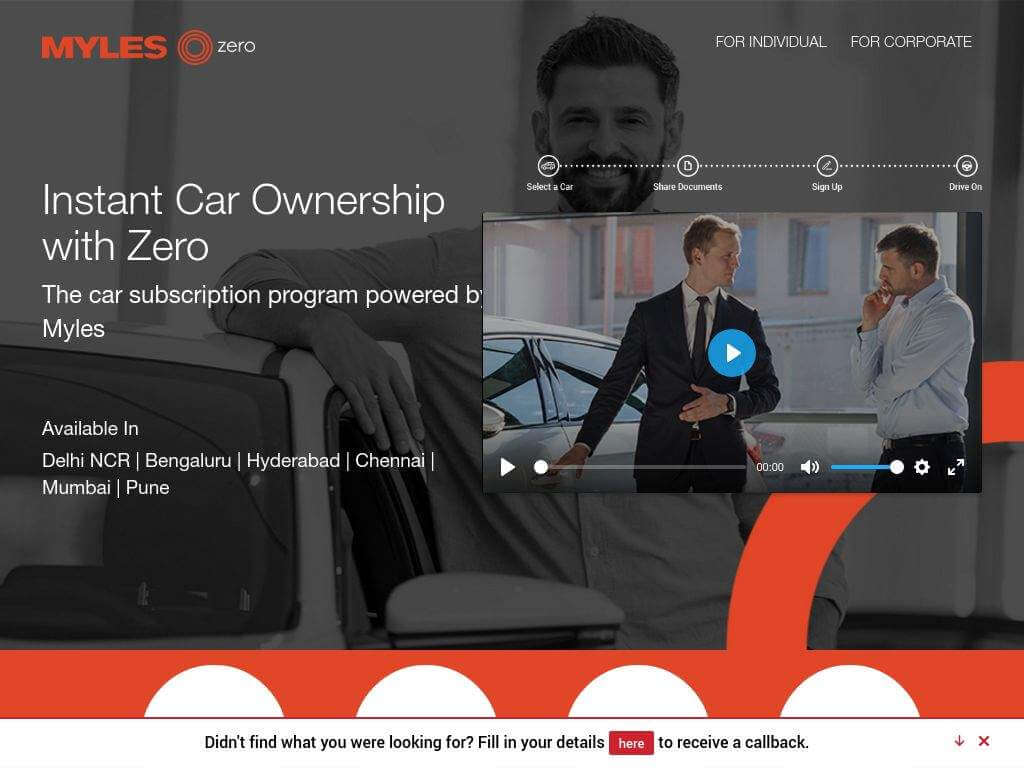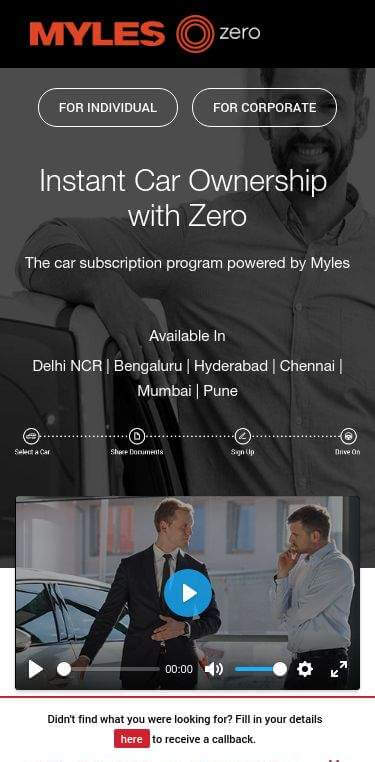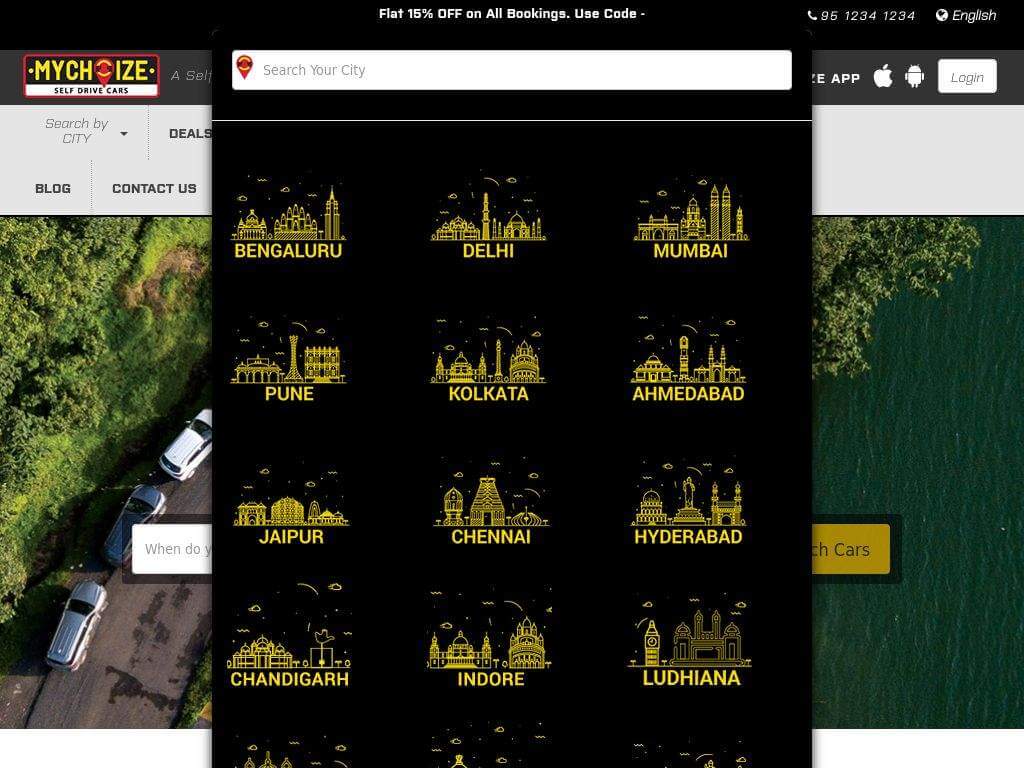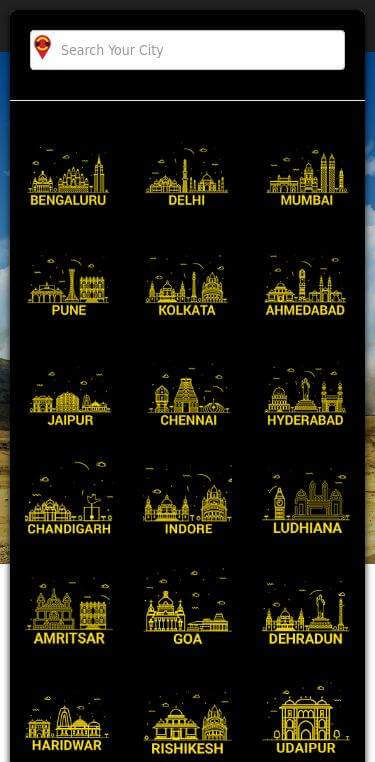 Simon Richardson
Simon Richardson
Last update 14. April 2023
What is a car subscription?
- Car subscriptions are similar to long-term rentals, with terms ranging from a few days to 4 years on a fixed monthly rate.
- Breakdown cover, tax, maintenance and often insurance are all included in the price. You only pay for gas and any tolls/penalties.
- Breakdown cover, tax, maintenance and often insurance are all included in the price. You only pay for petrol and any tolls/penalties.
Most booking processes are online, or app based. The terms are generally quite flexible with penalty-free cancellations and even the chance to regularly switch vehicles.
7 tips that you should remember when subscribing to a car
We have tried out a few different subscriptions, so we know what to expect when you’re going through the process.
The following tips will help you understand what to do, as well as how to avoid the types of mistakes and pitfalls that can be irritating and expensive.
Tip # 1: Check the Conditions
If you want to get started with a car subscription, you should pay attention to the contract conditions.
- Firstly, your provider should be clear about notice periods, add-on and joining fees, and any other terms. If they’re burying it in the small print, that’s a red flag. See our car subscription providers comparison table for details.
- Secondly, choose a company that provides convenience for your situation. Check delivery terms and rates, what’s included on the app in terms of concierge services, and typical lead times.
Tip # 2: Pay attention during the vehicle handover
Allow plenty of time at the vehicle handover. Make sure you document the condition of the car on paper. Also, take photos and a video with your mobile phone camera.
Why? Because handovers tend to be quite quick. The driver responsible for the delivery is usually adhering to a tight deadline and wants to get their job done quickly.
You’ll notice it’s quite the opposite when it comes to return the vehicle. You get a professional appraiser, and they are extremely thorough and detailed. If you haven’t done your own thorough inspection to start with, this might result in extra costs.
When you get the car, it’s more or less unchecked and the delivery appraisal won’t be particularly detailed
This can result in the returns appraiser finding things that they didn’t spot on delivery, which weren’t actually caused by you. So, take your time during the handover. Even if the driver wants to leave immediately, stay calm. Take your pictures, check all the documentation, and don’t let them go until you’re happy.
Tip # 3: what do car subscriptions cost? Understand the costs!
The most important cost with car subscriptions is the monthly rate. This varies depending on the model, spec, included mileage plan and subscription length.
You can find vehicles for under 13,000 INR a month, but luxury cars can go up to 100,000 INR per month.
In addition to the subscription rate, there are other charges that can affect how much you pay overall:
- Sign-up fee
- Delivery costs
- Return delivery costs
- Additional costs for subscription features such as additional drivers or mileage allowance
- Petrol or diesel costs (or electricity)
- Cleaning and Detailing (often included)
- Costs for parking and permits
- Voluntary insurance deductibles
Recommendation: Estimate your total monthly costs by adding these together. Expect that not everything will be included, read the Ts and Cs carefully, and get your head round the true cost of the subscription.
Top tip: The insurance deductible is usually the biggest “hidden” cost.
That leads us straight to tip 4.
Tip # 4: Your voluntary insurance deductible
Be really aware of the insurance terms and the deductible rate, particularly with shorter-term subscriptions. These costs can be very high if you have an accident or damage the vehicle, regardless of fault.
Remember that your car should be insured according to the vehicle’s IDV. If the IDV is lower, the voluntary deductible should be lower too. Also, remember that the voluntary deductible is chargeable per incident. So, if you have multiple incidents, you’ll end up paying the quoted excess fee multiple times.
Make sure if the damage to the vehicle that is minor that you don’t pay the deductible before checking what the cost of repair is. If it’s less than the deductible, you will usually be able to just pay the lower of the two costs.
Extra tip for your deductible: ood value in this market is around 10,000 INR, but this can go up depending on whether you’re signing up with a new vehicle.
Conclusion: The main impact on your overall cost is largely impacted by the deductible and the number of claims you need to make, especially with short-term subscriptions.
Tip # 5: The stated delivery window is not binding
According to the terms and conditions of most providers, the specified delivery times for your vehicle are non-binding.
Some subscribers have reported that agreed delivery times have not been adhered to.
Bear this in mind and allow extra time for lateness. In particular, you might want to consider avoiding making bookings that are time-sensitive for that day, like flights or important appointments.
Conclusion: Leave plenty of time on delivery day – but don’t worry; the vast majority of deliveries go smoothly.
Tip # 6: New or used cars?
So, you want a brand-new car? Depending on the company, this often possible, but the majority of subscription cars are used cars with low mileage. There could be a few scratches on the paintwork, but most cars are less than 2 years old and have less than 20,000 miles on the clock. So, you’ll find the car in good condition even if it isn’t completely new.
Tip # 7: Pay attention to the included mileage
Sometimes, you will find car subscriptions with extremely low monthly rates. But the catch is often that the number of included kilometres is very low, and you have to pay quite a steep per-kilometre price for exceeding that limit.
Bearing in mind the cost of petrol, find an offer that combines a decent price with a good monthly mileage. Typically, you should be able to find contracts that offer 2000-4000 kilometres per month.
Do choose carefully if you are thinking of exceeding your limit. The excess cost per kilometre varies quite heavily and it’s always worth asking if the provider will offer you an add-on package instead.
If you pay attention to these seven tips, you’ll have a much better time of it when you take the plunge and give subscriptions a go. Remember to check our comparison table to help.
Basic requirements for car subscriptions
Most car subscription companies typically have the following conditions:
- Minimum age 21-25 years (depending on provider and vehicle)
- CIBIL score of 700+
- Held license for 1 year or more
- Indian address
If you fulfil all these conditions, the vast majority of companies will have something for you.
Benefit of using our service:
A comprehensive list of providers & conditions here:
Car subscription providers in India
There are three types of companies that offer car subscriptions:
- Dealerships,
- Car rental companies, and
- Specialist subscription providers.
Here is the list of the current car subscription providers in India:
Testing an electric car on subscription – is it a good idea?
Would you like to try out an electric vehicle for a few months with no obligation? A car subscription is ideal for this, because you will find that many providers now offer electric cars .
The number of electric options is increasing with demand. The current percentage of hybrid models and electric cars on the market is around twelve percent, but it’s going up each year. What’s more, lots of motorists are already using subscription companies as a way into the electric market.
The advantages are numerous. With a subscription, you can:
- Get familiar with charging at home and on the road
- Try out a few vehicles
- Get hold of an electric car quickly, as lead times for purchases are often quite long
- Figure out what you might save on fuel by switching to electric
A comparison of car subscriptions, long-term rentals & leasing
We have looked at the similarities and differences between these three different forms of car “ownership” in the table below. Of course, these are general comparisons – not every company offers the exact same terms. You can find a few notes regarding these different features below the table.
| Subscriptions | Leasing | Purchase by Bank loan | |
|---|---|---|---|
| Typical contract lengths | A few days-48 months | 12-60 months | 3-7 years (with guarantor) |
| Price / month | Quite cheap | Varies | Quite high |
| Flexibility (cancellations, rolling usage) | High | Low | Low |
| Online booking process | Yes | Sometimes | Yes |
| Exact car you want | Depends on the provider | Yes | Yes |
| Swapping vehicles | Depends on the provider | No | No |
| Inclusive of tax, breakdown cover, maintenance etc. | Yes | No | No |
| Insurance included? | Yes | No | Yes |
| Depreciation risk | No | Yes | Yes |
| Repair risk | No | Yes | Yes |
| Free mileage | Yes | Yes | No |
| New car | Depends on the offer | Depends on the offer | Yes |
The contract length
With a car subscription, you get many inclusive services and a car you can usually exchange on demand, with contract lengths of around one to twelve months.
With leases, there is more paperwork and longer lead times. Typically, the contract lengths are longer, going up to four years.
If you’re buying a new car, the lead times can be very long if it’s coming from fleet – or you can walk away the same day with a second-hand car. For hire purchase, contract lengths are flexible with an average of 3-7 years depending on your finances.
Of course, with all three types, there are differences between the various providers in terms of contract length.
Price
If you look across the three methods, you’ll notice that subscriptions are cheaper than leasing and purchasing a vehicle with a bank loan. Whether or not it’s worth going for the higher priced option depends on your personal needs. Subscriptions typically make more sense for individuals while purchasing is good if your finances are stable.
With leasing, it’s a bit different with a focus on a longer term and higher pricing to reflect the commitment.
Flexibility
With car subscriptions, you benefit from a high level of flexibility. Contracts vary in length and cancellations and extensions are easy to implement. With many providers, you can also swap cars at short notice.
Leasing, in contrast, offers very little flexibility because you sign up to a specific contract for a specific vehicle. You can’t reduce the contract length without a heft penalty, and you can’t change vehicles during the contract.
Similarly, with a purchase, you commit to buying a specific vehicle, so after your initial cooling off period, there is zero flexibility.
Online booking
Most subscription services are online or app based. They involve minimal paperwork, and you don’t have to go anywhere to complete a booking.
You can arrange leases online, but you need to be computer savvy as there is a lot of paperwork to do. For this reason, customers often prefer to attend offices in person.
To buy a vehicle, you need to visit a dealership to present your documentation for inspection.
Exact car you want
Some providers will let you configure the spec of your vehicle in the subscription market. Of course, this will alter the ongoing cost.
The great advantage of leasing is that it is highly customisable as you are committing to having it for a long time.
Of course, with purchasing, you always pick the exact vehicle.
Inclusive Services
As far as inclusive services are concerned, subscriptions have a lot included. You’ll get tax, certification, maintenance, breakdown cover and insurance (although the latter is not always the case with subscriptions). You only pay for petrol or electricity. Of course, you bear no depreciation risk either.
This is slightly different with leasing. Here, you bear all the costs and responsibilities, such as tax, breakdown, detailing and maintenance, etc. You ‘re also responsible for insurance on top of the monthly lease cost. And if you damage the car and cause it to depreciate, that is also a cost you will bear at the end of the contract – it usually comes off your deposit.
With ownership, the only add-ons you can purchase relate to the length and detail of warranty.
New cars
Whether you get a new car or not depends on the provider with all three methods of car “ownership” – or your preference and finances in the case of purchasing. However, it is possible across the methods and becoming a more popular option over time, especially with electric vehicles.
Even more about car subscriptions!
The concept of car subscriptions is still relatively new, so questions keep coming up that we answer in our FAQs.
A comprehensive list of providers & conditions here:
 Australia - English
Australia - English Brasil - Portuguese
Brasil - Portuguese Canada - English
Canada - English Deutschland - Deutsch
Deutschland - Deutsch España - Español
España - Español France - Français
France - Français India - English
India - English Italia - Italiano
Italia - Italiano Nederland - Nederlands
Nederland - Nederlands Norsk - Bokmål
Norsk - Bokmål Sweden - Svenska
Sweden - Svenska UK - English
UK - English US - English
US - English Österreich - Deutsch
Österreich - Deutsch